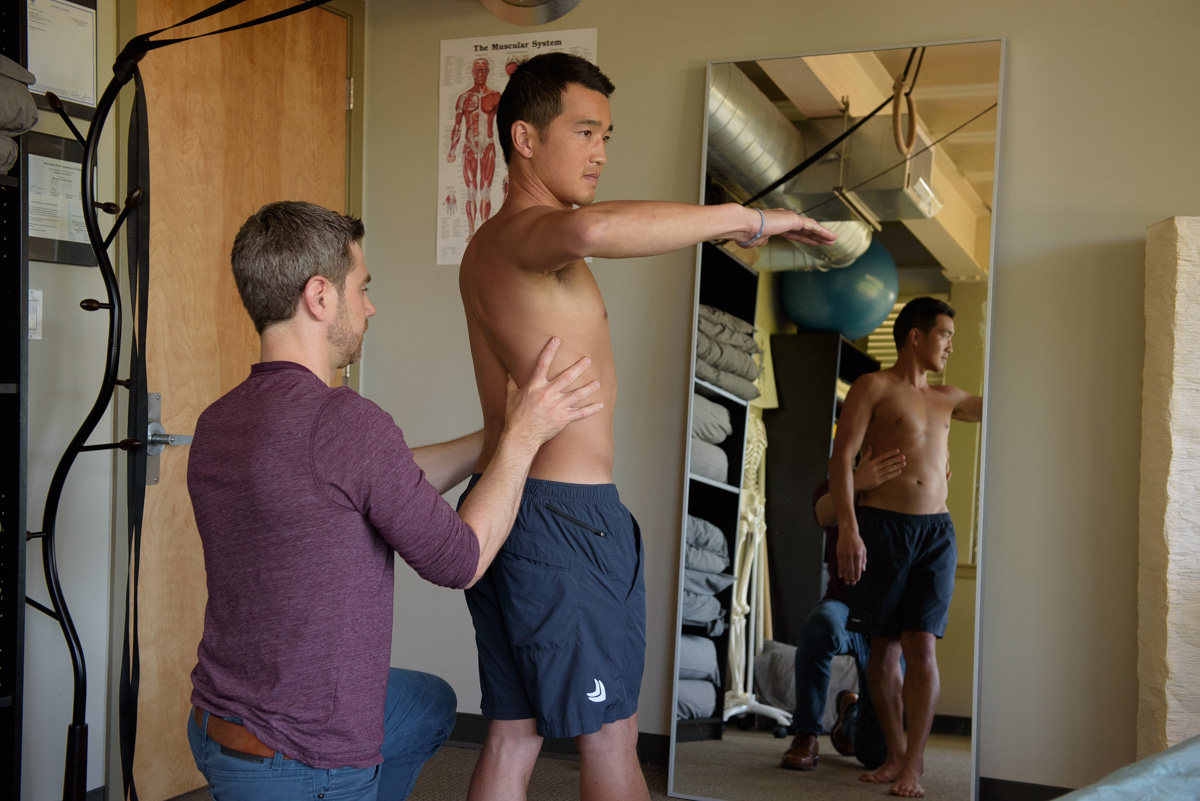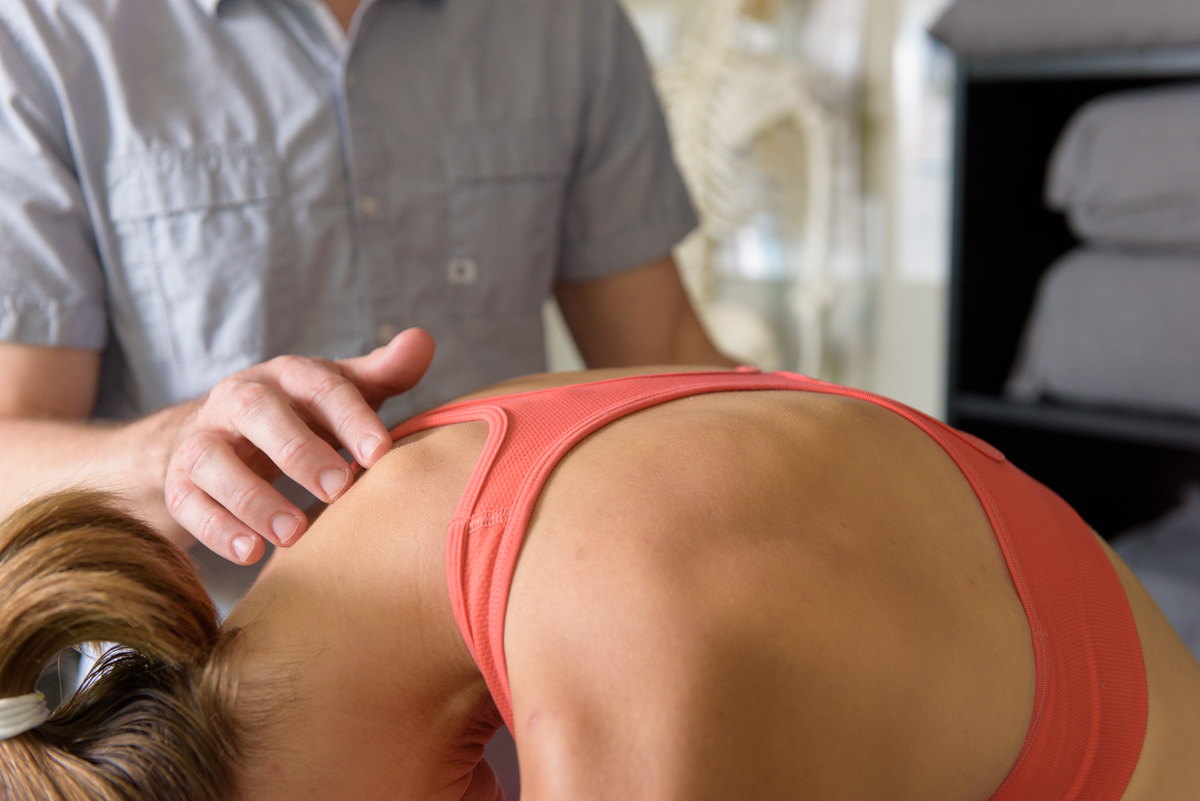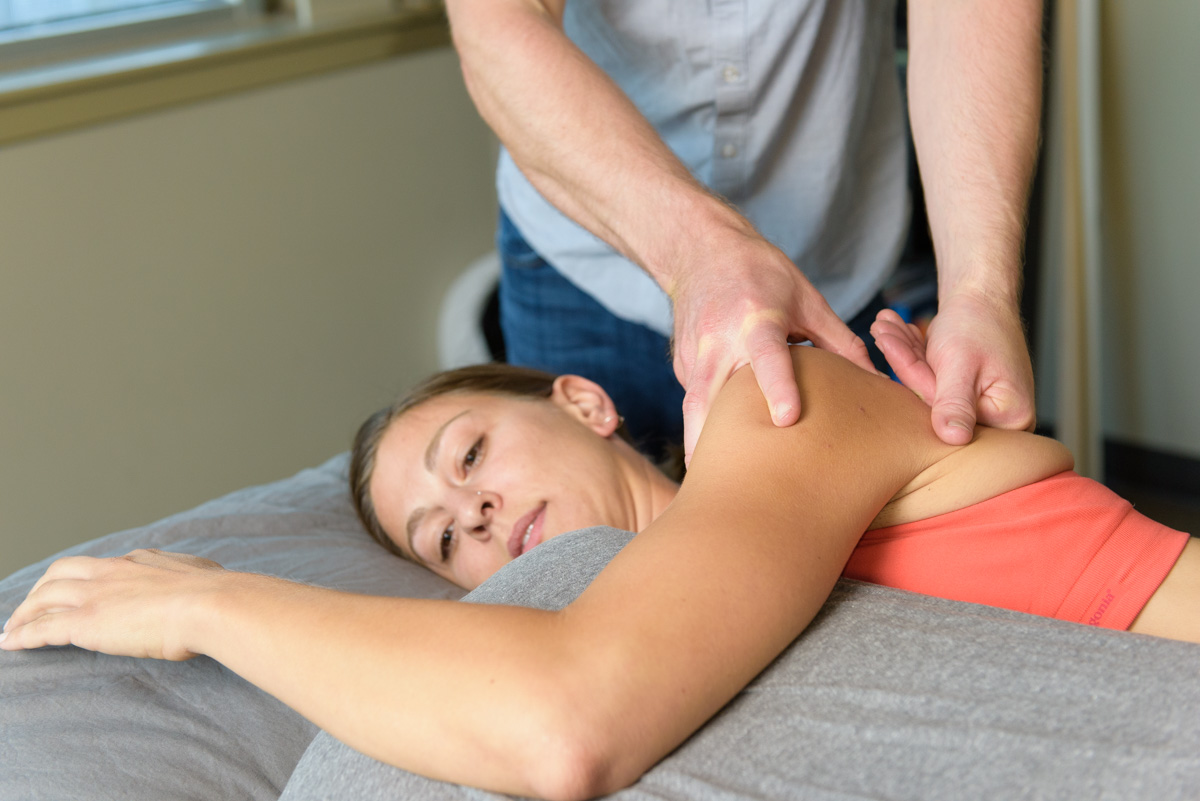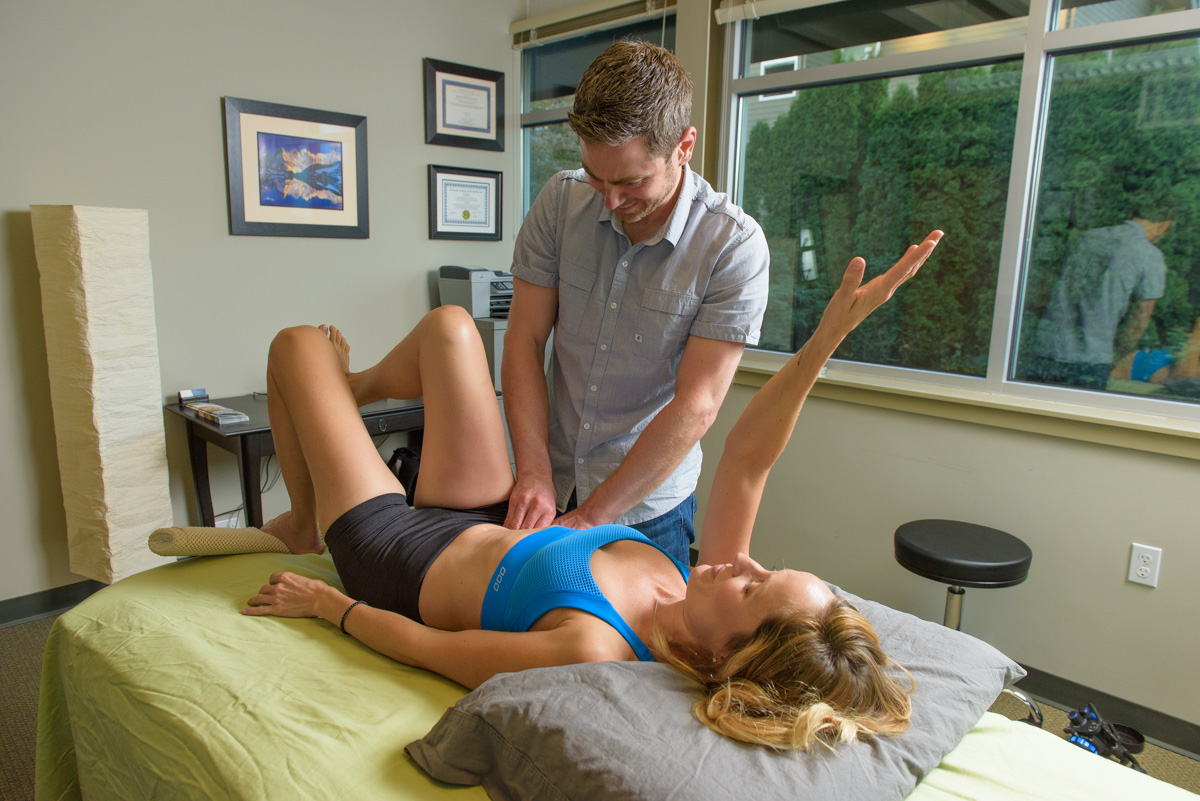“The small group instruction that connects the anatomy, actual movement, and assessment with clinical skills and pre/post activity results in the direction I wish all schools would go when teaching practitioners”
Workshop Series: Functional Fascia
The Interplay Between Fascial Tensegrity, Skeletal Organization, and Movement Patterns
Learn to Identify Structural and Movement Limitations
Today’s movement specialists deal with a diverse client population, each presenting with a unique history of injuries, movement patterns, restrictions, and pathologies. In this three-part evening series, you will learn how to identify structural and movement limitation in your clients. We will employ Myofascial Length Testing to identify the primary movement restrictions in the three-dimensional fascial tensegrity of the body.
By developing your knowledge of restrictions in the fascial lines you’ll be able to identify root cause in movement dysfunction. With these tools you’ll differentiate yourself as an industry expert and be able to customize your client’s movement/exercise programming to address areas of restriction and reduce the likelihood of injury.
In this series you will learn to:
Evaluate your client’s structural integrity and their ability to clearly translate movement efficiently through their structure
Teach clients how to find better skeletal organization to create potent movement potential
Learn to assess movement patterns relating to the legs, shoulders and back
Identify Structural limitations in your clients through Myofascial Length Testing
Create customized movement modifications specific to your clients unique structural and functional limitations
Get up to date on current fascial research and tissue remodeling
Establish better postural cuing for clients in Yoga, Pilates, and Sports that are specific to their unique fascial rotations, distortions, and limitations
Who should attend this series
This series is for movement trainers—Pilates, Yoga, Personal Trainers, Athletic Trainers—and anyone who is a manual therapist interested in movement and movement assessment, such as Structural Integrators, PTs, OTs, Chiropractors, Massage Therapists. In addition, anyone who is interested in becoming a student of the Institute of Structural Medicine is also welcome to join.
Cost: Individual Class: $50 (3 Course Series Package $40/class)
Location: 4242 East Mercer Way, Mercer Island, WA 98040
Time: 7–9 pm
Register Here!
Taking on a Tensegrity Paradigm Series
Deepen your inspiration in your work by joining us for a four-part bodywork series. There is a raising demand by clients looking for health care professionals who can address their complex and multi-faceted issues. This series will offer a powerful paradigm shift on how you assess and treat your clients by utilizing a three dimensional, nonlinear, tensegrity approach to the body, and its relationship to our emotional holding and belief patterns.
Come learn the secret to asking the right questions, learn how to understand the mechanism of injury, and gain global assessment skills that allow you to identify and treat root causes, not just localized pain. You will learn to accomplish lasting embodied changes for your clients.
4 Part Series:
Inspiration and the Dynamic Fascial Anatomy of Breathing Jan 12-13, 2019
Fascial Slings: Elastic and Powerful Contralateral Movements March 9-10, 2019
Emerging Into a Vertical Expansion with Gravity: Part 1, Flexor Line. April 6-7, 2019
Emerging Into a Vertical Expansion with Gravity: Part 2, Extensor Line. May, 2019 (rescheduled due to snowstorm)
Classes can be taken individually or as a series. For a full class description and objectives see below.
Instructors:
Donna Bajelis, Physical Therapist, Structural Medicine Specialist, and Board Certified Structural Integrator
Joe Kelly, Structural Medicine Specialist, Board Certified Structural Integrator, and Licensed Massage Practitioner
Cost:
$400 per weekend. You can sign up for one or all four.
Location:
Phinney Neighborhood Association
6532 Phinney Ave N Seattle, WA 98103
Time:
9:00am-6:00pm Saturday & Sunday (1hr lunch break)
CEU Credits
16 CEU credits through the Institute of Structural Medicine
Cancellation Policy
Please send written cancellation notice to Joekelly@joekellyaim.com
Prior to 30 Days: $125 admin fee
Within 8-30 days: 50% refund
Less than 7 days: No Refund
“Integrating the Pelvis was a wonderful combination of evaluation, functional practice and techniques to use during treatment. You walk away with skills that you can apply the next working day.”
Inspiration and the Dynamic Fascial Anatomy of Breathing Jan 12-13, 2019
To create, lasting embodied changes for our clients, we will address the primary function of breathing and understand the role of the autonomic nervous system. When functioning well, inspiration comes easily and we are filled with delight, thrill, and wonder for the world around us. We will examine how to best support our clients in restoring both their physical breath and their deep connection to an inspired life. This training will teach you how to:
Identify and treat the global circumferential fascia of the thorax and associated boney prominences to create a base of support for the shoulder girdle and neck
Remodel and reshape the thorax to enhance breathing mechanics and emotional flexibility
Address the fascial anatomy contributing to cervical and thoracic pathologies
Employ Myofascial Length Testing addressing the thorax, shoulders, and neck
Implement Visual and Movement Assessment to identify the Structural and Functional patterns of breathing mechanics
Differentiate between primary and secondary muscles of inhalation/exhalation and identify the consequences of improper usage.
Fascial Slings: Elastic and Powerful Contralateral Movements March 9-10, 2019
Many clients lack the mobility, stability and coordination to create dynamic and powerful movement through the fascial slings. This often results in inefficient movement patterns that, over time, lead to wear and tear. When we integrate the fascial diagonals, we create powerful movement that spirals up through the hips, torso, and arms. In this course, you will:
Explore how forces are transmitted through the fascial slings, creating power, and stabilization
Demonstrate how a force originating at one end of the fascial slings has far-reaching vectors: either by transferring power efficiently, or by creating wear and tear.
Use Myofascial Length Testing to identify specific limitations in the fascial slings
Understand fascial sling pathologies that contribute to low back pain, SI Pain, scapulothoracic and glenohumeral joint dysfunction
Assess stabilization and power in contralateral movement
Assess coordination and trunk stability of the shoulder and pelvic girdles
Learn how overuse, poor movement patterns and trauma create twisting of the fascial wrapping, leading to joints complications.
Emerging Into a Vertical Expansion with Gravity: Part 1, Flexor Line. April 6-7, 2019
Our fast-paced, contemporary American culture has quickly conditioned our attention and focus into a narrow existence. We live, work, and move in boxes and stare into little boxes (smartphone/computers) for the vast majority of our waking hours. Our attention is often oriented forward and down, creating a shortening of the flexor fascia of the body. We spend most of our day in our heads with little regard for our body’s needs— often sitting for hours in unorganized and compressed postures. We also tend to engage in linear, repetitive sports such as running and cycling, which result in shortening the body’s anterior fascia.
This class shows you how to create a new foundation, grounding and connection for clients, bringing them back into their bodies and thus opening themselves to a more expansive and inspired life. As Ida Rolf said, “humans have evolved to be bipedal, but not vertical.” We will build a base of support through the feet and legs to begin finding a more easeful verticality, and will free the torso, neck and head to open and expand our sense of the world around us. Join us as we:
Identify and treat structural compensations of anterior tilt/sheer of pelvis, depressed sternum and rib cage, rounded shoulders, flat back, and forward head posture.
Address the fascial anatomy contributing to patellar pain and tracking, low back pain, abdominal surgical scars, neck pain, and headaches.
Use Myofascial Length Testing to assess the flexor myofascia.
Improve verticality in standing to enhance physical ease
Identify contributing causes to shortening of the flexor fascia
Balance the pelvis to support the upper body
Emerging Into a Vertical Expansion with Gravity: Extensor Line, Part 2. May 18-19, 2019
The extensor musculature often lives in a reactionary holding pattern in order to keep the body upright in a world dictated by gravity. In our society, we often use the term “holding back,” for expressing the way we repress our emotions or referring to the way we stop ourselves from making progress. We shy away from expressing our assertiveness, spontaneity, deep emotions, personal power, and more. Accumulated stress caused by many factors compresses the body’s vertebral structure, generating shearing forces that degrade the spine and create weak links. In addition, these compressive factors cause the extensor line to lose its elasticity, resulting in musculotendinous damage.
In this course, we will balance and lengthen the extensor fascia to bring people back into their vertical line and harmony with gravity by:
Identifying and treating structural compensation of the posterior tilt of the pelvis, weight- bearing in the heels, excessive lumbar and cervical lordosis, and hyper-extended knees
Addressing the fascial anatomy contributing to disc degeneration, bulging discs/herniations and facet-joint arthritis
Utilizing Myofascial Length testing of the extensor myofascia
Improving verticality in standing to enhance physical ease
Identifying contributing causes of shortening of the extensor fascia
Balancing the pelvis to support the upper body
Donna Bajelis PT, CHP, SMS
Donna Bajelis is a nationally respected educator and leader in the field of Structural Integration. She has 40 years of experience combined, as a Licensed Physical Therapist, Certified Hellerwork Trainer, and Structural Medicine Trainer.
A graduate of University of Connecticut, Donna double majored in physical therapy and pre-med. She continued her post-graduate studies in physical therapy at internationally renown Kaiser Vallejo Hospital, where she specialized in PNF (proprioceptive neuromuscular facilitation.) Equipped with a strong knowledge of neuromuscular systems, Donna continued to develop her in-depth understanding of joints and the skeletal and fascial (connective tissue) systems of the body. She has completed extensive post-graduate coursework in the fields of physical therapy, osteopathic medicine and orthopedic medicine, specializing in joint mobilization. Donna specializes in orthopedic/neurological manual therapy, which includes myofascial release, joint mobilization, and neuromuscular re-education. She maintains a practice in Seattle and Twisp, Washington.
Learn more here: www.StructuralMedicine.com
Joe Kelly ACSMS, BCSI, LMP
Joe Kelly is an Advanced Certified Structural Medicine Specialist and a Board Certified Structural Integrator. He runs a thriving private practice in Seattle, WA and teaches at the Institute of Structural Medicine.
Joe also teaches movement seminars blending the worlds of movement, physical training and structural integration. He has studied extensively with top level practitioners in the fields of Structural Integration, Feldenkrais, and other movement modalities. In his private practice, Joe works with clients taking them through the Structural Medicine Series, the 7 Day Body, and treating complex pathologies. In his free time he is an advanced backcountry skiing, mountaineer, explorer, movement coach and educator.
Learn more here: www.JoeKellyAIM.com
“This class was one of the more exceptional ones I’ve taken. The material is immediately useful to me... the instructors each have a depth of knowledge in complementary overlapping fields which made it very rich and seamless feeling.”
Previous Courses
Integrating the Pelvis for More Powerful Movement
Please join Donna Bajelis and Joe Kelly for a truly unique and provocative educational opportunity that changes the way you understand and think about the structure of the human body. We want to teach you how to think and expand your comfort zone with customized treatments tailored to your client's specific structural challenges.
We welcome a broad base of practitioners including chiropractics, physical therapists, registered nurses, occupational therapists, structural integrators, massage therapists, osteopaths and doctors.
April 29-30 9:00am-5:00pm
Location: Crown Hill Center, Seattle
Many clients suffer from a pelvis that is incongruent with their legs and torso. The pelvis is the powerhouse of the body, and yet many people don’t know how to access that power leaving them with less than satisfactory movement. Learn how to effectively assess and test the pelvis to determine the underlying structural and functional imbalance. Practitioners will acquire Structural Medicine manual and movement techniques to enhanced connection and integration of the legs, pelvis and torso.
Postural Assessment Techniques
Myofascial Length Testing
Integrate and Balance the Fascial Tensegrity of Your Clients
Identify Structural and Functional Patterns
Learn Myofascial and MovementTechniques
Create Lasting Results with Clients
Class size is limited so secure your spot today.
Continue your learning with evening workshops
We want you to continue to grow by providing an opportunity to join us for evening workshops. After participating in the class you will be offered the opportunity to continue your learning with evening seminars. As a group we will evaluate and treat a client so you can continue to develop the skills acquired during the workshops. More details will be available in the near future about dates and costs.












